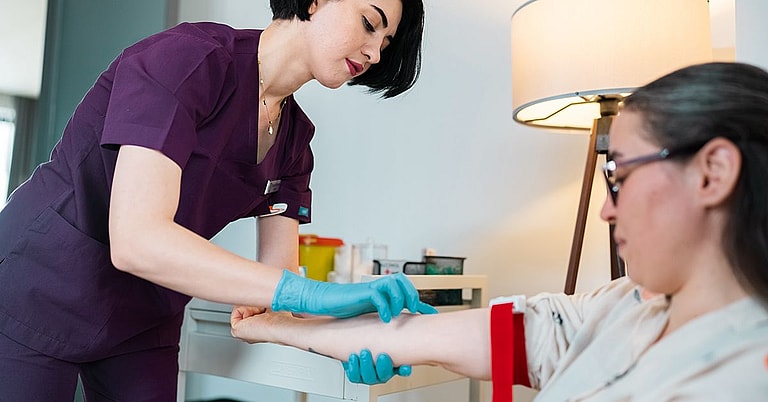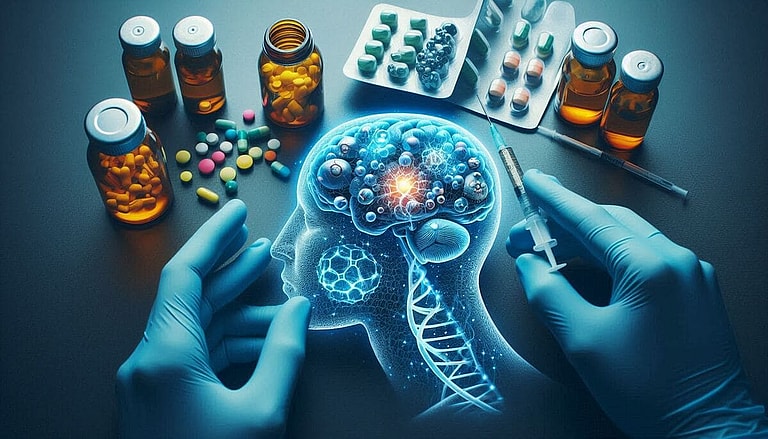Hematology
Hematology: Hematology is the study of blood in health and disease. It includes the treatment of blood disorders and malignancies, including types of hemophilia, leukemia, lymphoma and sickle-cell anemia. Hematologists are the medical doctors who specialize in this field, often working alongside oncologists in the treatment of cancer.
Warm Hemolytic Anemia: Symptoms, Diagnosis, Treatment, and More

Warm hemolytic anemia is a rare condition that affects your red blood cells. It causes anemia-like symptoms, such as fatigue, jaundice, and paleness. In warm hemolytic anemia, the destruction of red blood cells happens at body temperature. This isn’t always…
Is Osler-Weber-Rendu Syndrome Fatal? Outlook and More

Most people with this condition live a full, typical life, but it can be life threatening if a blood vessel ruptures in an internal organ and bleeds uncontrollably. Osler-Weber-Rendu syndrome, which is also called hereditary hemorrhagic telangiectasia (HHT), is a…
Direct Oral Anticoagulants (DOACs): Examples, How They Work

Direct oral anticoagulants (DOACs) are a newer class of anticoagulants that are more targeted and work faster than traditional options. They also don’t require frequent monitoring and have fewer dietary restrictions. Direct oral anticoagulants (DOACs) are a group of medications…
What Is von Willebrand Factor?

Von Willebrand factor (VWF) is a protein crucial to the blood clotting process. If you don’t have enough of this protein, or if it doesn’t work as it’s supposed to, you may have von Willebrand disease (VWD), a bleeding disorder.…
Reblozyl Dosage: Form, Strengths, How It’s Given, and More

Reblozyl (luspatercept-aamt) is a prescription drug that’s used to treat anemia in adults from certain blood disorders. The drug is given as a subcutaneous injection by a healthcare professional. It’s usually given once every 3 weeks. Reblozyl is used in…
What is a Hematology Follow-Up: Overview, Benefits, and Expected Results

Definition and Overview Patients who have blood-related conditions and have gone through an initial consultation are typically required to make a follow-up with a hematologist, a medical specialist who focuses on the diagnosis and treatment of blood disorders. The primary…
What is Hematology Consultation: Overview, Benefits, and Expected Results

Definition and Overview A hematologist is a medical specialist that deals with the study, diagnosis and treatment of blood disorders. A patient may be referred by a general physician or family doctor to a hematologist if he is anemic, is…
What is Bone Marrow Transplant Follow-Up: Overview, Benefits, and Expected Results

Definition and Overview A bone marrow transplant follow-up is a post-transplant appointment between a patient and his healthcare team, which include an oncologist and hematologist (blood specialist). A bone marrow transplant is a procedure where the marrow, or the fatty…
Bone Marrow Biopsy

What is Bone Marrow Biopsy: Overview, Benefits, and Expected Results Definition and Overview A bone marrow biopsy is one of the two procedures performed in a bone marrow examination, the other one being the bone marrow aspiration. The procedure, which…
Anticoagulation Management

What is Anticoagulation Management: Symptoms, Causes, Diagnosis, and Treatment Definition and Overview Anticoagulation management refers to different therapies used to treat, prevent, and manage blood clotting disorders. When a person gets injured, it is normal for the skin to break…
What is Upper Gastrointestinal Hemorrhage?

Upper gastrointestinal hemorrhage is a medical condition in which heavy bleeding occurs in the upper parts of the digestive tract: the esophagus (tube between the mouth and stomach), the stomach or the small intestine. This is often a medical emergency.…
What is Thalassemia?

People with thalassemia do not produce enough hemoglobin, a protein that binds to iron within red blood cells and helps circulate oxygen throughout the body. Low hemoglobin and low red blood cell count can lead to symptoms of anemia such…




